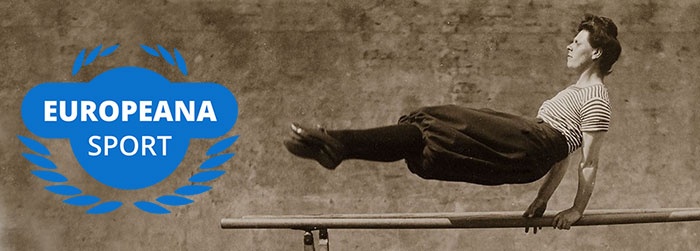A gesture by Polish pole vaulter Władysław Kozakiewicz at the 1980 Olympics was seen as political
The 1980 Olympic Games - the XXII Olympiad - took place in Moscow in the Soviet Union, from 19 July to 3 August. These games were politically fraught, boycotted by representatives of 63 countries as a result of the Soviet–Afghan War.
Following the inauguration of the Games at Łużniki Stadium, 5,217 athletes took part in 203 events, setting 36 world records, 39 European records and 74 Olympic records.
One of the most famous events taking place at these Games was the pole vaulting competition - a track and field event in which a person uses a long flexible pole as an aid to jump over a bar.
The Polish pole vaulter Władysław Kozakiewicz came to Moscow as a favourite, having won multiple European championships in the years before these Olympics.
However, on the day, conditions in the stadium were not in his favour.
The audience were very disapproving of non-Soviet athletes, jeering and shouting at foreign competitors. Even the organisers of the Games tried to influence the results by opening and closing the stadium's gate, caused the wind direction - crucial for pole vaulting - to change.
Despite these efforts, Kozakiewicz won, with successful jumps of 5.70m, 5.75m and 5.78m, guaranteeing him the Olympic gold medal. With his last jump, Kozakiewicz broke the world record.
After that successful jump, Kozakiewicz made a gesture which was written into the history books.
The 'Kozakiewicz gesture' as it became known is made by bending an arm in an L-shape, with the fist pointing upwards, while the other hand then grips the biceps of the bent arm as it is emphatically raised to a vertical position.
The gesture was considered offensive. In Poland, it is also called 'wała' (which translates as shaft). In France, it is known as a bras d'honneur (France), and the Iberian slap or Italian salute elsewhere.
Photographs and footage of Kozakiewicz with his gesture flashed around the world, causing repercussions between Poland and Soviet Union. Boris Aristov - then the USSR Ambassador to Poland - demanded that Kozakiewicz be stripped of his golden medal and banned for life from any future Olympics.
Others have interpreted the gesture as a symbol of overcoming the bar or a gesture of joy from Kozakiewicz. The Polish authorities gave an official statement saying that Kozakiewicz had muscle cramp.
His gesture was supported in Poland, which in the early 1980s was seeing many labour strikes against Soviet control over Eastern Europe, which led to the creation of Solidarity trade union soon afterwards.
Politics played a role in Kozakiewicz’s later life. As part of the Soviet-led boycott of the 1984 Los Angeles Olympics, Poland did not participate. He defected to West Germany in 1985 but his career was hampered by the Polish authorities. He retired in 1989, later becoming a member of Gdynia city council between 1998 and 2002.
Share your sport story
Can you help us to tell the story of sport in Europe in the past and the present?
We invite you to tell us about your sport experiences through objects like photographs, memorabilia, equipment or prizes.
Share your story →
This blog post is a part of the Europeana Common Culture project, which explores varied aspects of our shared cultural heritage across Europe.

